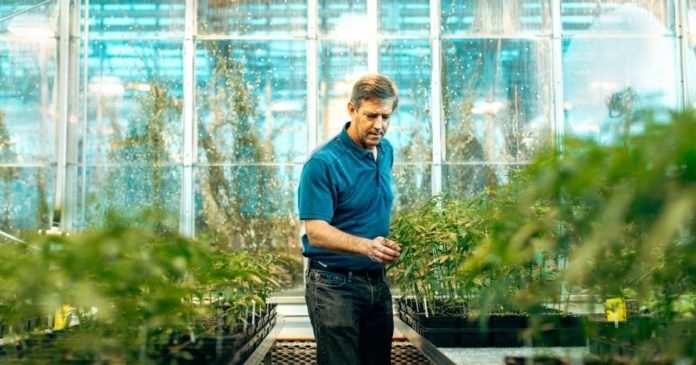Some widely held assumptions on THC levels in hemp have been put under the spotlight in a recent study.
While hemp has far less of the intoxicating cannabinoid tetrahydrocannabinol (THC) than its cousin marijuana (low THC levels are what makes a cannabis sativa plant hemp legally speaking), it still varies enough to cause headaches for farmers.
Where hemp is legal, the maximum THC level permitted depends on the jurisdiction – but it’s usually anywhere from .3% to 1%. Even a little over whatever limit has been put in place and the crop becomes “hot hemp” and will usually have to be destroyed. In addition to the loss of the crop, the farmer may be charged with offences related to growing marijuana depending on circumstances and regulations.
So, getting THC levels right is very important – and this can be hard for farmers to control. Some believe growing conditions can have an impact. For example, drought conditions have been thought to boost THC as the plant’s response to stress.
However, Cornell University researchers say whether a plant will have the potential to go “hot” is determined by genetics, not growing conditions.
The Cornell team conducted field trials at two sites involving 217 hemp plants. They found differences in growing conditions between the two sites had no significant influence on production of compounds such as cannabidiol (CBD) and THC. What did was their genetics. They also found that to prevent the potential of a crop going hot, hemp growers ideally want plants with two CBD-producing genes.
Additionally, the researchers determined as many as 66% of the seeds acquired for one hemp variety produced THC above legal limits – even though these were supposedly low-THC hemp seeds. This finding underlines the significant risks farmers are exposed to when sourcing seed; and there have been plenty of news stories of farmers being caught out.
“The molecular assays developed in this paper provide useful tools in breeding hemp,” said Jacob Toth, first author of the paper. “To keep THC levels low, ensuring a lack of THC-producing genes will be important for the development of future compliant cultivars.”
The researchers’ work has been published in the journal Global Change Biology-Bioenergy – the study report can be viewed in full here.


